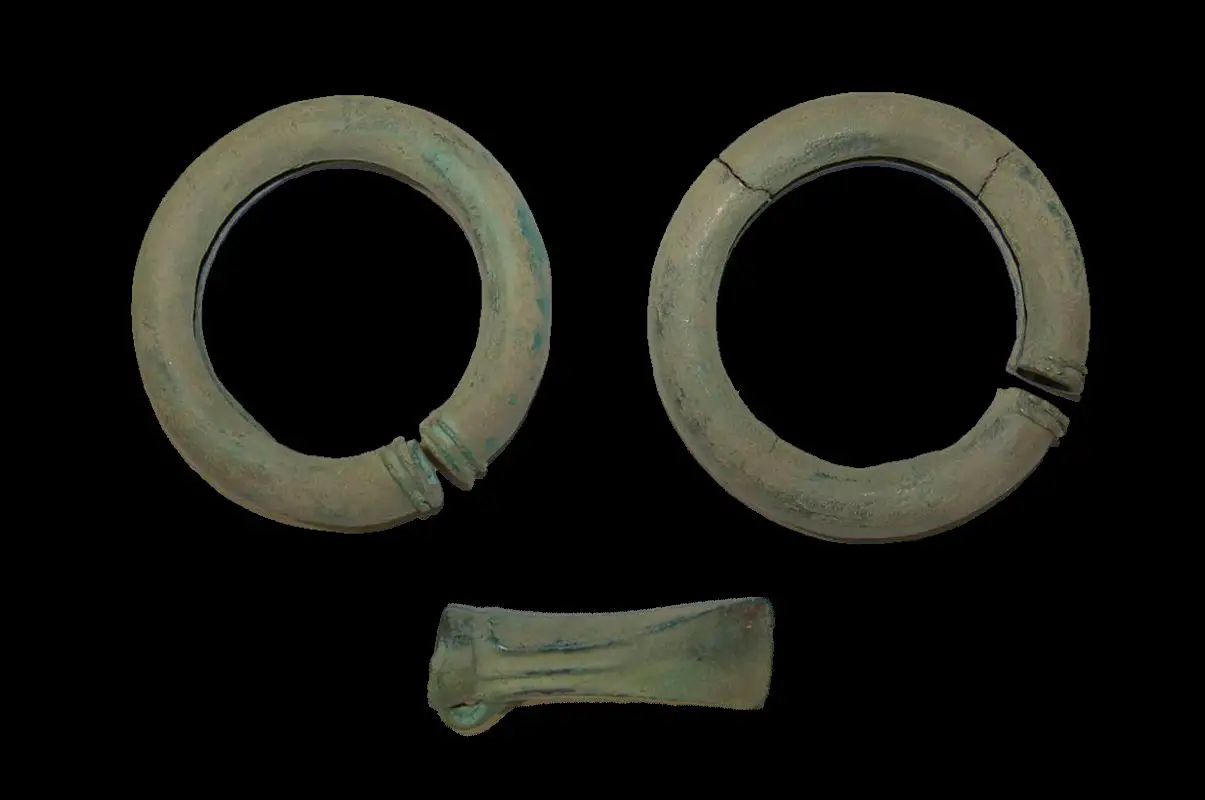A team from the Suska Land Lovers Society has uncovered a small Bronze Age treasure in the commune of Zalewo, Poland.
The discovery was made during a metal detecting survey, revealing a collection of bronze artefacts that date from 2,500-years-ago from around the end of the Bronze Age and the beginning of the Early Iron Age.
The survey was conducted with the consent of the monument protection services and the landowners in accordance with local laws.
In Poland, it is forbidden to conduct an amateur search for artefacts using a metal detector, either for commercial or for personal use unless licensed by local authorities, requiring all finds to be reported which become the property of the state.
The bronze artefacts consist of an axe and two bronze hoop ornaments that were worn either as bracelets, armlets, or greaves.
The lack of burials at the site suggest that they were not deposited as grave goods, but instead were likely buried by the owner for security or during a time of conflict.
Determining which culture can be associated with the finds is difficult due to the lack of artistry and typical type forms for comparison, however, the period from which the finds date suggests that they could be associated to the Lusatian culture which existed in the later Bronze Age and early Iron Age (1700 BC – 500 BC) in most of what is now Poland.
The finds have been described as a “small treasure” by the Provincial Office for the Protection of Monuments and have been transferred to the Museum in Ostróda for further study.
Header Image Credit : Ostródzie Museum





